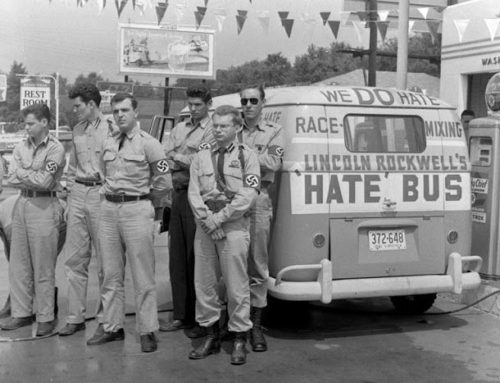Has anybody noticed how well the U.S. car industry is doing lately? It’s hard to remember all those car industry guys going before Congress back in 2008, begging for cash to keep their doors open.
But you know who didn’t go begging and still turned their company around? Ford.
And the reason is their CEO had already spent two years getting things right so they didn’t have to.
Alan Mullaly had been a top exec at Boeing when he was asked to come run Ford. When someone asked him if he was ready to tackle something as complex as a global car company, you know what he said? “A car has about 10,000 moving parts. An airplane has two million AND you have to keep it up in the air.”
Here’s how he turned Ford around and I think we can learn from it.
One, he forced everyone to join the team.
Before he got there, meetings at Ford were about stabbing each other in the back and looking for strategies of self-preservation.
Mullaly made that all stop. He would say, “So-and-so HAS a problem, but HE is NOT the problem. Who has a way to help him with the problem?” He made it clear that if anybody had a problem, everybody had a problem and he made it clear everybody was responsible for the success of the company.
Meetings got a lot better after than. So did their operations.
How would you rate us on that? Do we consider our neighbor’s problems to be everyone’s problem and do we look for ways to help them? Or do we just let them dangle while the business suffers?
Two, he forced everyone to use the same set of facts.
Before Mulally, it was common to use different sets of numbers. That let everyone have a different excuse for why things weren’t working but did nothing to solve the root causes of their problems.
So Mulally brought all the leaders together in a weekly business plan review and everyone had to put all their numbers on the table. There was nowhere to hide. Everybody saw everyone else’s real numbers.
How about us? Do we really have a culture that shares the truth across the board, no matter how inconvenient the truth may be? And if we do that, how do we ever fix anything?
Three, Mullaly created “One Ford.”
When he got to Ford, he discovered there were many companies in one – Ford of Europe, Ford of Asia and a bunch of other divisions and subsidiaries.
So his first job was to bring them together as a single, global enterprise. When he did, he created unimaginable economies of scale and turned Ford into an automotive powerhouse.
When Mulally started, reports asked him if he was considering any mergers. “Yeah,” he said, “we’re going to merge with ourselves!”
We should look at where we can reduce the divides and increase our own economies of scale.
Four, he made Ford build cars and trucks people actually wanted.
There’s a reason American car companies have seen their market share tank over the last 50 years, and that reason is how their products stacked up against Japanese and European competition.
Ford spent a lot of years producing cars and trucks that were not exactly the most attractive products out there, so Mulally insisted that stop. Everything they build now has to be the best in its class. That’s taken them a lot of cash to do, but Ford made the investment because Mulally told them “You’ve been going OUT of business for 30 years. Now’s the time to get back IN it.”
Five, Ford came up with one plan and stuck to it.
Ford used to come up with a strategic plan for success on an annual basis. Then, the next year, they’d come up with another one. They never stuck to the program.
So Mulally came in with a simple plan, said “here it is, now execute” and kept working. The plan was what I just listed: getting everyone together, leveraging Ford’s global assets and building products people wanted to buy. The last part was putting together the financing to pay for it all.
About the third time he gave the same speech with the same plan, a reporter asked him when he was going to come up with something new. He said, “We’re still working on THIS plan? Why do we need a new one?”
What about you and your organization? Are you really looking for ways you can execute your current plans better and more effectively? Or are you just sitting on your status quos expecting things to change while we do the same things we always did?
What if you could make your operations best in class of any global company? What if you went above and beyond anyone else’s expectations?


